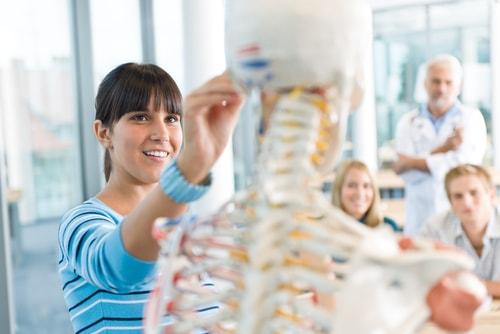Donating Your Body to Science
 Do you have a plan in place for what will happen to your body when you die? While this is not the most exciting topic to think about, it is an important consideration for you and your loved ones to make well in advance of the need. An overwhelming majority of Americans choose from one of two options: burial or cremation. Some families need the comfort that comes with being able to visit a grave or the closure of spreading a loved one’s ashes in a favorite place. There is a third option, however. You could choose to donate your body to science and provide ambitious medical students with their first patients.
Do you have a plan in place for what will happen to your body when you die? While this is not the most exciting topic to think about, it is an important consideration for you and your loved ones to make well in advance of the need. An overwhelming majority of Americans choose from one of two options: burial or cremation. Some families need the comfort that comes with being able to visit a grave or the closure of spreading a loved one’s ashes in a favorite place. There is a third option, however. You could choose to donate your body to science and provide ambitious medical students with their first patients.
Organ Donors vs. Whole Body Donors
In today’s society, there seems to be a stigma attached to the idea of donating one’s body to science or medical research, perhaps because it is simply seen as non-traditional. Burial rites play an important role in many religions, but orthodox adherence to religious customs has been on the decline for a number of years. Additionally, more than half of American adults—over 130 million people—are registered as organ donors. This means that while many individuals are willing to have their organs put to use in possibly saving another person’s life, they are significantly less willing to donate their entire bodies. Research suggests that there are fewer than 20,000 whole body donations annually in the United States.
A Gruesome, Necessary Reality
So, what becomes of bodies that are donated to science? Some bodies are put to use in pharmaceutical testing, as crash-test subjects by automakers, and to help train forensic investigators and anthropologists. Most whole-body donations, however, are used—for lack of a more compassionate term—to provide training materials for medical students as they study anatomy. First-year medical students around the country can be shown exactly how the human body works, and while the dissection of a cadaver may turn some stomachs, the lessons taught in the process are invaluable. The bottom line is that while donated organs can help improve the lives of a few recipient individuals, a donated body can benefit several soon-to-be doctors and, by extension, every patient and family they help in their careers.
Make a Plan
To properly preserve a body for scientific study, time is of the essence following the person’s death. This means that if you wish to donate your body to science, you should plan ahead and share your plans with your loved ones. Federal law prohibits the sale of bodies or body parts, so your family cannot be compensated, but there are independent organizations that can facilitate a donation to a medical school at little or no cost to you or your estate.
If you have decided that you would like to donate your body to science upon your death, an experienced Lombard estate planning lawyer can help you make the proper arrangements. Call 630-426-0196 and speak to a compassionate member of our team today.
Sources:
http://news.nationalgeographic.com/2016/07/body-donation-cadavers-anatomy-medical-education/
https://www.organdonor.gov/statistics-stories/statistics.html















